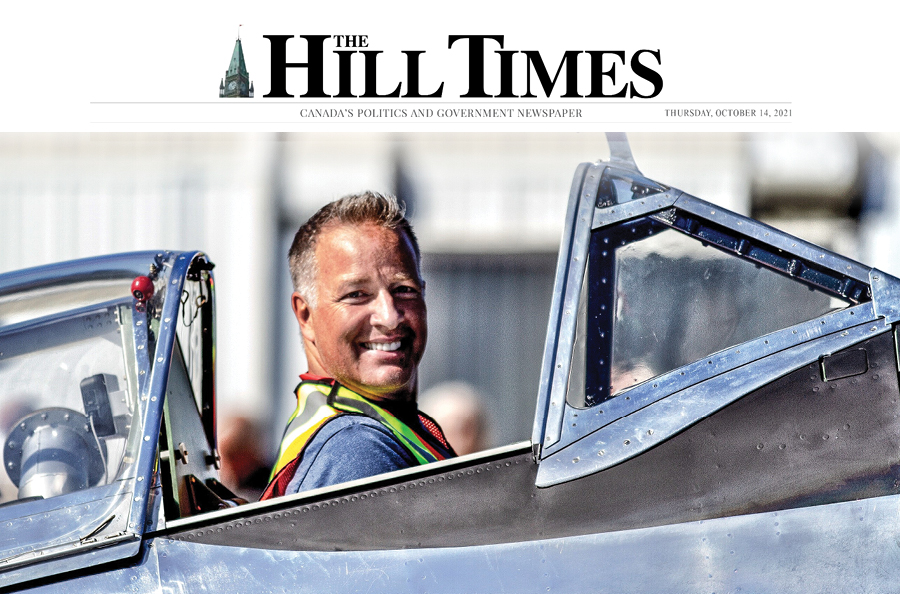by STEPHEN FUHR
Sometimes it is hard to figure out the best option, the right choice. There are always so many factors to weigh and potential consequences to consider. And the bigger the decision, the more complex the considerations that come into play, the more difficult the decision-making can appear.
But it isn’t always so. Take the decision facing the Government of Canada about its Future Aircrew Training (FAcT) Program, the contract that covers all facets of Canada’s military flight-training requirements. With the contenders for this lucrative, long-term contract now down to two, the choice is increasingly stark. Do we want to continue the longstanding practice of having Canadian military pilots and aircrew trained in Canada by Canadians or do we want to hand off an area of Canadian leadership and expertise to another country?
Longstanding is not hyperbole, by the way. Canada has been training aircrew for over three quarters of a century, and not just our own. In 2016, the Royal Canadian Air Force (RCAF) joined in marking the 75th anniversary of the British Commonwealth Air Training Plan (BCATP).
The BCATP was a massive undertaking: it was a $2-billion project, with $1.5-billion coming from Canada, and $0.5-billion coming from the Commonwealth, so it represented a huge investment and commitment by Canada and its people—a $2-billion project in 1939 is roughly the equivalent of a $200-billion project in today’s dollars. But it was a strategic decision and investment by the Canadian government of the day and a major contributor to an Allied victory in the Second World War: the BCATP graduated some 131,000 pilots, navigators, wireless operators, air bombers, air gunners, and flight engineers. Its legacy is still seen and felt in Canada today. For example, many of the airports across Canada that we use now were built as part of this effort. Moreover, Canada’s current leadership in aerospace and aircrew training grew out of the BCATP.
It’s a proud history, and one that most Canadians don’t know (a recent survey conducted by Ipsos found that eight in 10 are unaware that Canada has been a leader in military pilot training since the Second World War). Yet, to this day, there is a NATO Flight Training Centre in Canada and Canadians enjoy a well-deserved reputation as global leaders in aircrew training and simulation, which can be traced back to that long ago strategic choice.
While Canadians may not be aware of Canada’s leadership in this area, the Canadian government certainly is. In fact, training and simulation has been identified by the Canadian government as a key industrial capability, or in their own words an established area of capability “where Canada is globally competitive and… where domestic capacity is essential to national security.”
Canadians get behind that reasoning. They are nearly unanimous in agreeing that it is essential for our national sovereignty and security that Canada should retain the capacity to train its own military pilots (92 per cent agree, including 45 per cent who strongly agree); and that we should retain that key capability in Canada, under Canadian control (92 per cent agree, including 39 per cent who strongly agree). Moreover, and perhaps unsurprisingly, given current geopolitical trends and the vulnerabilities exposed by the global pandemic, Canadians are strong supporters of buying at home when it comes to military contracts: nine in 10 Canadians (91 per cent) agree that when the Canadian government makes major defence and security acquisitions, a key area of focus should be to buy services and equipment from Canadian companies.
If the supply chain problems of the recent pandemic have taught us anything, it is that when something is essential, we’d better have the capacity to produce it ourselves. And keeping military aircrew training in Canadian hands is not only essential to our sovereignty, but also good for our economic recovery, keeping the jobs and growth, and expertise, and export opportunities here at home. This is not a small consideration. The two Canadian companies, CAE and KF Aerospace, that currently run all aspects of pilot training in Canada, and that hope, working together as a new entity called SkyAlyne, to continue to do so, employ over 15,000 Canadians through their partnerships and supply chains. The considerable revenues attached to their work on this program all stay in this country, rather than supporting a foreign parent entity.
So, when faced with a contest that pits a truly Canadian entity against a group of foreign-based competitors, how can it even be a contest? Let’s choose to step up and reinforce our own position and reputation as global leaders in aircrew training rather than step back and let someone else lead.
Stephen Fuhr served as Member of Parliament for Kelowna—Lake Country, B.C., from 2015 to 2019 and chaired the House National Defence Committee in the 42nd Parliament. He served for 20 years in the Canadian Forces as an A2 flight instructor, standards officer and CF-18 fighter pilot. Mr. Fuhr also ran the Canadian Forces Instrument Check Pilot School for the Royal Canadian Air Force. He is retired and can frequently be found in the skies above the Okanagan.
***
This op-ed originally appeared in the Hill Times on October 14, 2021.




